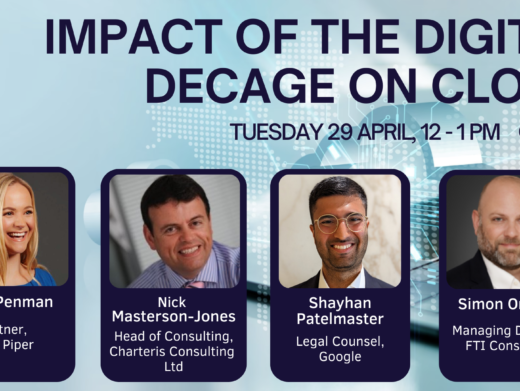TLA, founded in 2013, is a network of over 10,000 tech leaders, entrepreneurs, lawyers and experts in London, across the UK and in over 50 countries worldwide. TLA’s Blockchain Legal & Regulatory Group was set up in 2018 by Anne Rose, Managing Associate and Co-Lead of the Blockchain Group at Mishcon de Reya.
As with the first edition, this latest guidance draws on the expertise of leading lawyers, academics and technologists to set out suggested best practice for legal practitioners working on matters involving distributed ledger technology (DLT).
As well as reviewing and, where appropriate, updating the chapters contained in the previous guidance, this second edition covers a number of new topics, including:
- Types of Cryptoassets: an examination of a few different types of cryptoassets, including CBDCs and stablecoins.
- Decentralised Finance (DeFi): an overview of the adoption of the Financial Action Task Force recommendations in respect of Virtual Asset Service Providers and developments in the DeFi space.
- Non-Fungible Tokens (NFTs): this section is split into three parts. Part A looks at some of the practical and legal issues with regards to ownership rights. Part B offers a deep dive into whether an NFT could fall within the remit of a financial regulatory asset. Part C considers if the mechanics by which NFTs are issued or sold and/or if any aspect of the ecosystem in which NFTs may be utilised might constitute “gambling” and require the provider to hold a gambling licence issued by the Gambling Commission of Great Britain.
- Social Tokens: this section considers three types of social tokens: (1) personal tokens; (2) community tokens; and (3) social platform tokens. It goes on to examine the terms and conditions that apply to social tokens, and the interplay between social tokens and smart contracts. This section ends by exploring the different classifications of tokens identified by the Financial Conduct Authority and the regulatory environment in the UK.
- Blockchain and ESG: this section examines the rise of ESG considerations amongst corporates, financial institutions and investors, and how this affects their interactions with DLT. It looks at the various ESG-related concerns associated with cryptocurrency businesses and some of the challenges these businesses may need to overcome as ESG continues grow in significance.
As Sir Geoffrey Vos, Master of the Rolls said during the launch event on 11 January 2022 “Blockchain technology is not something that might happen in years to come, it is something happening now… [the latest TLA guidance] explains to lawyers and others what they need to know and why they need to know it.”
Clearly, now more than ever, it is vital that legal practitioners are equipped to advise in this environment. This guidance represents a functional, everyday knowledge resource, providing best practice considerations for lawyers dealing with DLT and associated technologies.
The second edition of the guidance will receive an update later this year to cover decentralised governance, the metaverse/virtual worlds and smart contracts (particularly following the publication of the Law Commission of England and Wales’ smart legal contracts advice to Government).
In 2022 the authors will also add an annex to the guidance of a more technical nature, outlining some of the characteristics and key legal and practical issues to consider when deploying various token standards.
The second edition of the guidance, is published on the Law Society’s website.




